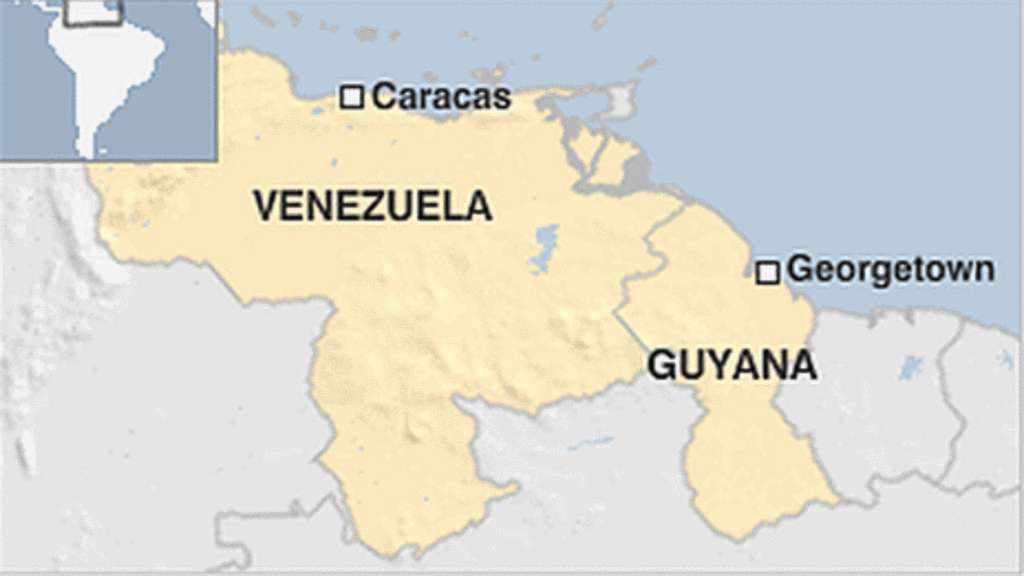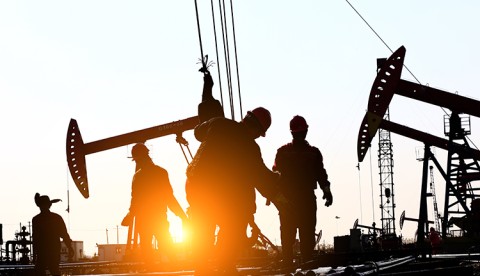Exxon Mobil Corporation (NYSE:XOM) recently discovered oil off Guyana’s coast but the country is involved in a land dispute with Venezuela, which can potentially disrupt the oil major’s exploration activities.
In 1899, an arbitration tribunal had finalized international boundaries for the two countries, but nearly 60 years later, Venezuela renewed the dispute as it rejected the tribunal’s findings.
Tensions between the two countries have been growing after Nicolas Maduro, President of Venezuela, reasserted his country’s claims over the Essequibo River, where Guyanese government has given an exploration concession to Exxon.
Exxon, which announced the discovery last month, had been growing concerned that Venezuela’s claims on more than half of Guyana’s territory could hamper its drilling activities in the region. However, President of Guyana, David Granger, believes otherwise.
Meeting with officials from Exxon Mobil, Mr. Granger assured the oil company that its exploration will not be affected by the dispute, The Wall Street Journal (WSJ) has reported.
According to the WSJ, Mr. Granger will depend on diplomacy to resolve the dispute, as opposed to military action.
“We’re not going to send the navy out there and battle it out,” Mr. Granger told the WSJ on Friday. “We’re a small nation, we have no interest in any sort of military confrontation,” Mr. Granger added.
Mr. Granger will look to gather the support of international community, with his campaign scheduled to start next week at an annual summit in Barbados. The dispute will be brought up in the United Nations General Assembly later this year, Mr. Granger said.
Mr. Maduro’s allies as well as opponents have pressured him to act against Guyana. He was scheduled to address Venezuelan congress this week on how to confront Guyana, but the meeting has been delayed until Tuesday.
“I ask for the help of the whole country, all social and political sectors, civil and military, to defend our territory, defend our fatherland,” Mr. Maduro said, according to the WSJ.
Mr. Granger is hoping to avoid potential hostile confrontations. “I hope he will be conciliatory,” Mr. Granger said, speaking about Mr. Maduro’s pending address to congress. “The issue was settled 116 years ago,” he added, referring to the 1889 decision.
Mr. Granger believes Exxon has little to worry about as it is US based. “The difference is that Exxon is U.S. property and any attempt to physically interfere with U.S. property might be faced with a different response,” Mr. Granger said.
Despite the disagreement over territory, economic ties between the two countries have improved since signing a rice-for-oil agreement in 2009. Venezuela receives almost half the rice exports of Guyana in exchange for oil. The recent controversy will not pose a threat to the agreement, according to Mr.
Granger.
“I don’t think there will be any danger that the border matter will jeopardize the agreement,” Mr. Granger said.
Source: Bidness Etc












